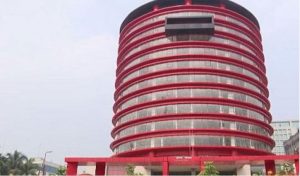Shahid Iman
It is so fitting that this year’s Nobel Prize in economics is awarded to two great economists who reshaped our understanding of the long-term determinants of economic growth: William Nordhaus of Yale “for integrating climate change into long-run macroeconomic analysis” and Paul Romer of NYU “for integrating technological innovations into a long-run macroeconomic analysis.” To sustained long-run growth we need innovation and must address climate-induced challenges. Amid the reign of climate skeptic Republicans led by Trump, IPCC has just released a report cautioning of dire consequences of moving beyond 1.5°C and urged to end the era of fossil fuel. Nordhaus introduced the idea of putting a price on carbon pollution. Romer addressed the limitations of the Solow growth model demonstrating how knowledge can function as a driver of long-term economic growth. His PhD dissertation was an instant hit laying the foundation of what is now called endogenous growth theory. Both Nordhaus and Romer are in favour of government intervention/regulation in the economy- an introduction of carbon tax in case of former’s work on climate change and R&D subsidy in case of latter’s work on innovation- so as to address the oversupply of emissions and undersupply of knowledge. Romer also offered solutions to address problems associated with urbanization, chiefly propagating the idea of charter cities (experimentation with new forms of city government and new types of government services). The classic examples of charter cities are Hong Kong and Shenzhen, the former was developed by the British and the latter by China, not following the then economic ideologies (laws, rules and regulations etc) of Mainland China. Yet each played important roles in fostering reform of China’s urban economy. On a personal note, I had the pleasure of listening to Romer in Singapore a few years ago where he delivered a public lecture on how civilization’s progress depends on non-rival good. He raised the brand of Bangladesh in the lion city citing the immense contribution made by Oral Rehydration Therapy (ORT), a simple treatment for diarrhoea (a non-rival good). ORT was invented in a public health research lab (ICDDR, B) in Bangladesh in the late 1960s saved over 50 million lives to date, and the dollars-and-cents value of this simple invention is a few times higher than Singapore’s GDP!
(Shahid Imon is a writer and researcher on development issues.)




